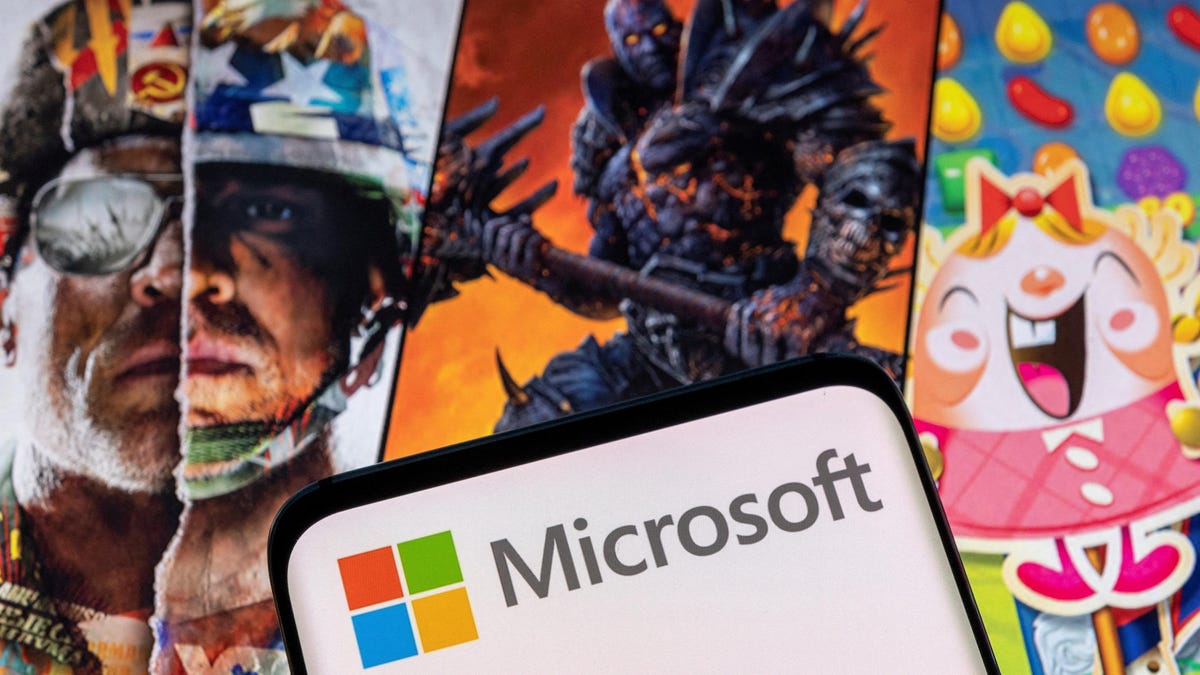Microsoft-Activision Deal: FTC's Appeal And Its Implications

Table of Contents
The FTC's Case Against the Microsoft-Activision Deal
The FTC's core argument against the Microsoft-Activision Deal centers on the assertion that the merger would create an anti-competitive monopoly, harming consumers and stifling innovation. Their case rests on several key pillars:
-
Concerns about Microsoft's control over popular franchises: The FTC highlighted Microsoft's potential control over immensely popular franchises like Call of Duty, World of Warcraft, and Candy Crush. They argued that this control could allow Microsoft to leverage these titles to exclude competitors, potentially making them exclusive to Xbox consoles or its Game Pass subscription service. This would limit consumer choice and potentially harm competing platforms like PlayStation and Nintendo Switch.
-
Potential harm to competition in the gaming console and subscription services markets: The FTC worried that the merger would significantly increase Microsoft's market share in both the console and subscription gaming markets. This dominance, they argued, would give Microsoft undue influence over pricing, game development, and distribution, ultimately harming competition and potentially leading to higher prices for gamers.
-
Allegations of anti-competitive behavior to stifle competitors: The FTC's lawsuit also included allegations that Microsoft has engaged in anti-competitive practices to maintain its dominance and to further its aims with the Activision Blizzard acquisition.
-
The FTC's argument for preserving competition and consumer choice: Underlying the FTC's entire case is the fundamental argument that preserving competition and ensuring consumer choice are paramount. They believe the Microsoft-Activision Deal, in its current form, would severely undermine these principles.
The Judge's Ruling and the FTC's Appeal
A federal judge ultimately ruled against the FTC, dismissing their lawsuit to block the Microsoft-Activision Deal. The judge's decision primarily rested on the argument that the FTC failed to convincingly demonstrate that the merger would substantially lessen competition.
-
Key arguments presented by the judge that weakened the FTC's case: The judge found that the FTC's evidence regarding the potential for anti-competitive behavior was insufficient. Specifically, the judge pointed to Microsoft's commitments to keep Call of Duty available on competing platforms as evidence that the merger would not lead to the exclusion of rival companies.
-
Discussion of the legal precedent set by the ruling: This ruling has set a significant legal precedent, raising questions about the FTC's ability to effectively challenge major tech mergers in the future.
-
Explain the FTC's decision to appeal the ruling: Unsatisfied with the ruling, the FTC filed an appeal, arguing that the judge misapplied antitrust law and failed to adequately consider the potential harm to competition.
-
Outline the potential timeline and outcomes of the appeal process: The appeal process is expected to be lengthy and complex, potentially lasting for several months or even years. The outcome could be another ruling against the FTC, upholding the initial decision, or a reversal, leading to further legal battles or the blocking of the deal.
Implications for Microsoft and Activision
The outcome of the FTC's appeal has profound implications for both Microsoft and Activision.
-
Impact on Microsoft's gaming strategy and market position: A successful appeal would significantly impact Microsoft's gaming strategy, potentially delaying or even preventing the acquisition. Conversely, a failure for the FTC to prevail would solidify Microsoft's position as a major player in the gaming industry.
-
Potential financial implications for both companies, including deal costs and legal fees: The protracted legal battle has already resulted in significant legal fees for both companies. A negative outcome for either side could lead to further financial burdens.
-
Effect on Activision's future development and release plans: Uncertainty surrounding the deal's future has already impacted Activision's planning. A definitive outcome will be crucial for Activision's long-term strategy.
-
Analysis of potential alternatives if the deal is blocked permanently: If the deal is ultimately blocked, both companies will need to reconsider their strategies, potentially exploring alternative partnerships or acquisitions.
Broader Implications for the Gaming Industry
The Microsoft-Activision Deal and the FTC's appeal have far-reaching implications for the gaming industry and tech sector as a whole.
-
Setting a precedent for future regulatory scrutiny of large tech mergers: This case sets a crucial precedent for how regulatory bodies will approach future mergers and acquisitions in the tech industry.
-
The influence on how companies approach mergers and acquisitions in the future: Companies planning future mergers and acquisitions will now need to carefully consider the increased regulatory scrutiny.
-
Impact on the overall competitive landscape of the gaming market: The outcome will significantly shape the competitive landscape of the gaming market, potentially influencing pricing, game development, and distribution strategies.
-
The role of regulatory bodies in shaping the gaming industry: The case highlights the growing role of regulatory bodies in shaping the future of the gaming industry and its competitive dynamics.
Conclusion
The FTC's appeal of the judge's ruling in the Microsoft-Activision Deal has far-reaching consequences for the future of gaming. The outcome will not only shape the fates of Microsoft and Activision but also set a precedent for future mergers and acquisitions within the tech sector. This case underscores the continuous tension between technological innovation and the imperative to maintain fair competition.
Call to Action: Stay informed on the developments in the ongoing Microsoft-Activision Deal. Follow the legal proceedings and their implications for the future of gaming. Understanding the intricacies of the Microsoft-Activision merger is crucial for anyone invested in the future of the gaming market.

Featured Posts
-
 A Comparative Analysis Blue Origins Struggles And Katy Perrys Continued Success
Apr 22, 2025
A Comparative Analysis Blue Origins Struggles And Katy Perrys Continued Success
Apr 22, 2025 -
 Trump Opposition A Look At Nationwide Protests And Demonstrations
Apr 22, 2025
Trump Opposition A Look At Nationwide Protests And Demonstrations
Apr 22, 2025 -
 Los Angeles Wildfires And The Growing Market For Disaster Related Wagers
Apr 22, 2025
Los Angeles Wildfires And The Growing Market For Disaster Related Wagers
Apr 22, 2025 -
 Bezos Blue Origin Vs Katy Perrys Career A Comparative Analysis Of Public Perception
Apr 22, 2025
Bezos Blue Origin Vs Katy Perrys Career A Comparative Analysis Of Public Perception
Apr 22, 2025 -
 Tik Toks Role In Sharing Strategies To Sidestep Tariffs
Apr 22, 2025
Tik Toks Role In Sharing Strategies To Sidestep Tariffs
Apr 22, 2025
